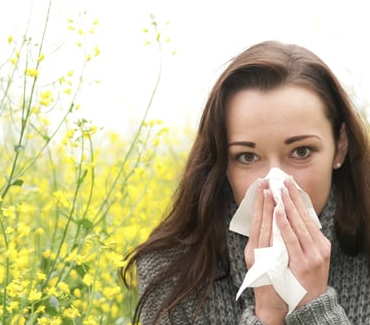
Hay fever, also known as allergic rhinitis, is an allergic reaction that occurs when the immune system overreacts to allergens in the environment. It is a common condition that affects a significant number of individuals worldwide. Here’s some information on the symptoms, causes, and treatment options for hay fever:
Symptoms:
1. Sneezing: Frequent and repetitive sneezing is a typical symptom of hay fever.
2. Runny or congested nose: The nasal passages may become inflamed, leading to a runny or stuffy nose.
3. Itchy or watery eyes: The eyes may itch, water excessively, or become red and swollen.
4. Itchy throat or ears: Some individuals may experience itching sensations in the throat or ears.
5. Coughing: A persistent cough may develop due to postnasal drip.
6. Fatigue: Hay fever can cause fatigue and irritability, often due to disrupted sleep caused by nasal congestion.
Causes:
Hay fever is primarily caused by an allergic reaction to specific airborne substances, known as allergens. Common allergens associated with hay fever include:
1. Pollen: Pollen from trees, grasses, and weeds is a significant trigger for hay fever symptoms.
2. Dust mites: Microscopic organisms found in house dust can trigger allergic reactions.
3. Pet dander: Allergies to pet hair or skin flakes are common in individuals with hay fever.
4. Mold spores: Mold can release tiny spores into the air, leading to allergic reactions.
5. Certain foods: In some cases, certain fruits and vegetables can cause symptoms similar to hay fever due to cross-reactivity with pollen.
Treatment:
1. Avoidance: Minimizing exposure to allergens can help reduce symptoms. This may involve staying indoors on high pollen days, keeping windows closed, using air purifiers, and regularly cleaning surfaces to reduce dust.
2. Medications:
– Antihistamines: Over-the-counter or prescription antihistamines can help relieve itching, sneezing, and runny nose symptoms.
– Nasal corticosteroids: These prescription nasal sprays reduce inflammation in the nasal passages, providing long-term relief.
– Decongestants: Over-the-counter decongestant nasal sprays or oral medications can provide temporary relief from nasal congestion.
– Allergy shots: Immunotherapy may be recommended for severe cases. It involves gradually exposing the individual to increasing doses of allergens to build up tolerance over time.
3. Eye drops: Over-the-counter or prescription eye drops can alleviate itchy, watery eyes.
4. Home remedies: Nasal irrigation with saline solution, using cold compresses on the eyes, and wearing sunglasses outdoors can provide some relief.
It’s important to consult a healthcare professional for an accurate diagnosis and appropriate treatment plan for hay fever. They can help determine the specific allergens triggering your symptoms and provide personalized recommendations.